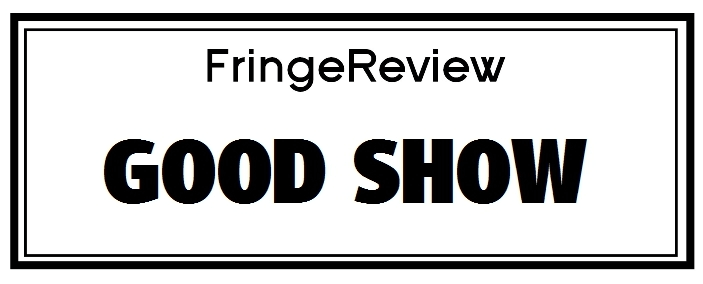Edinburgh Fringe 2023
Low Down
A well-performed solo play where a young man with mild learning difficulties, Jimbo, tries to understand the disappearance of his sort-of boyfriend Declan and scours the town and his imagination to find him.
Review
This short play, 50 minutes or so, is performed solo by Alistair Hall, who also wrote it. On the tiny Underbelly Cowgate : Belly Laugh stage, which is little more than a podium for stand-ups, he expertly brings to life the agonies, worries and imaginings of Jimbo, a young man with a childlike view and understanding of the world. In the opening minutes, it is apparent that Jimbo’s is not a robust adult take on reality, and as he describes an assailant drinking his blood, biting him in multiple places, weaving a detailed report of vampire-like activities in his bedroom, which he does little to resist, it is unclear if we are in a fantasy world where the characters are really experiencing supernatural forces or this is all in Jimbo’s imagination. What we are lead to believe is that his friend, Declan, who seems to have become a regular visitor to Jimbo’s house, and a snogging partner at least, if not a boyfriend of some sort, has disappeared. The time and place of Declan’s disappearance are known and his shoes and socks were found by the canal, which Jimbo visits repeatedly as he scours the mostly but not entirely hostile town and local population for any leads on what has happened to Declan.
The portrait of a child-like young man trying to cope with this strange world, is convincingly and emotionally portrayed by Hall, who enables us to see and understand things as Jimbo does. This is no mean feat, and his portrayal does not fall into clumsy stereotypes or simplistic mannerisms. Jimbo is a complex, true to life performance of a multi-dimensional character.
As for the plot, I am in no danger of giving away spoilers about the climax of the play, because, I am not sure what happens at the end. If this is intentional, it’s a pity, as it leaves so much hanging (as does any drama without a clear ending). If it is unintentional, it would be easy to clarify what actually happens to Jimbo in the final scene. The other plot element that could have been more substantially developed is described in the show’s publicity as Jimbo “along the way makes troubling discoveries about his own childhood.” These moments were so speedily delivered and so minimally scripted, that I was left unsure what Jimbo’s troubling childhood discoveries actually were. A pity, as it would have helped me understand how Jimbo came to be the young man we see on stage.
Plot confusions are easily solved with tiny rewrites. My main issue however was confusion about what genre(s) we were in. It is not totally apparent whether the vampire character was “real” in dramatic terms, i.e. this is a vampire drama, or that these are imaginings or hallucinations of Jimbo, in which case, there is doubt if Declan is really missing or not, or has just taken himself off because he can’t cope with Jimbo and his fantasies. Genre is everything in drama, audiences crave and need genre clarity, and this play left me oscillating between a number of genres, unsure what to take as the dramatic reality. Fusions of genre can be very interesting, but then an audience needs to be clear when they are in which genre. Some comedy-horror fusions have been international successes when the signposting and shifts between genres was clear, and if we really do move into different genres at different moments. The film, An American Werewolf in London is an early example of an expertly crafted comedy-horror genre fusion and What We Do in the Shadows a TV and film fusion of three genres, comedy-horror-documentary. Here I felt there was an attempt of fusion between possibly three genres, which is an admirable ambition. There was a mystery to solve (what happened to Declan?), the internal world of an outsider genre (Jimbo’s take on the world) and a fantastical/supernatural genre or was this part of the internal world genre; this is where the confusion lived, in not clearly signposting and portraying the shifts between genres and which genres we were in. It’s a real jigsaw puzzle of a dramatic format pull off, to move between genres and each transition needs to be meticulously crafted. This drama, despite the genre confusion, keeps your attention throughout, due to Hall’s energetic performance, even though he spends most of the time stood on the same spot on the tiny stage; a surprising directorial choice. Ultimately it felt more like a radio play (which is no insult as I am a radio drama producer/director). One could have switched off the lights and listened and lost very little. Despite Declan needing genre and plot clarity and an actual stage where movement and a set are possible, this is still a worthwhile and thought-provoking Fringe drama.



















































